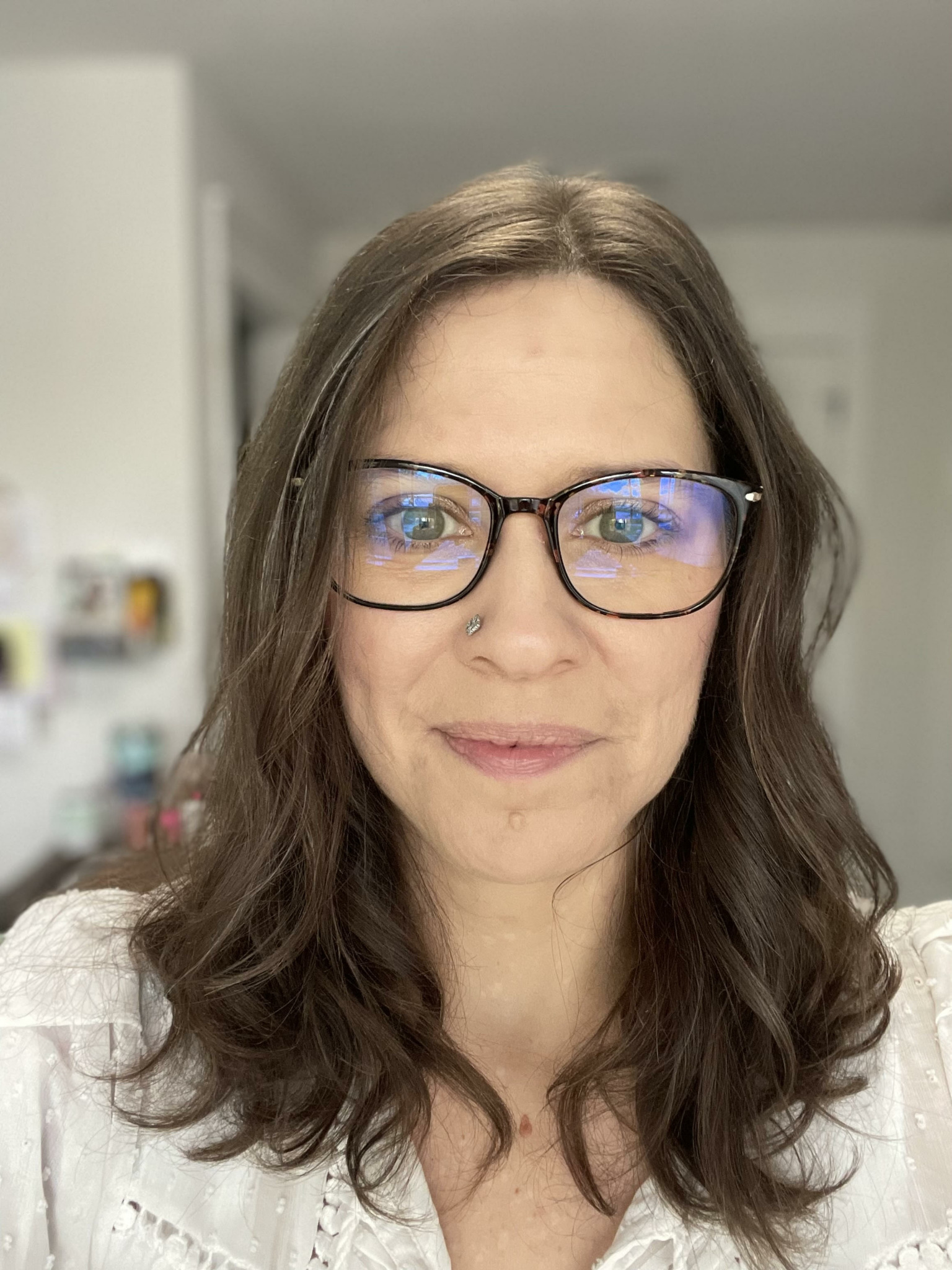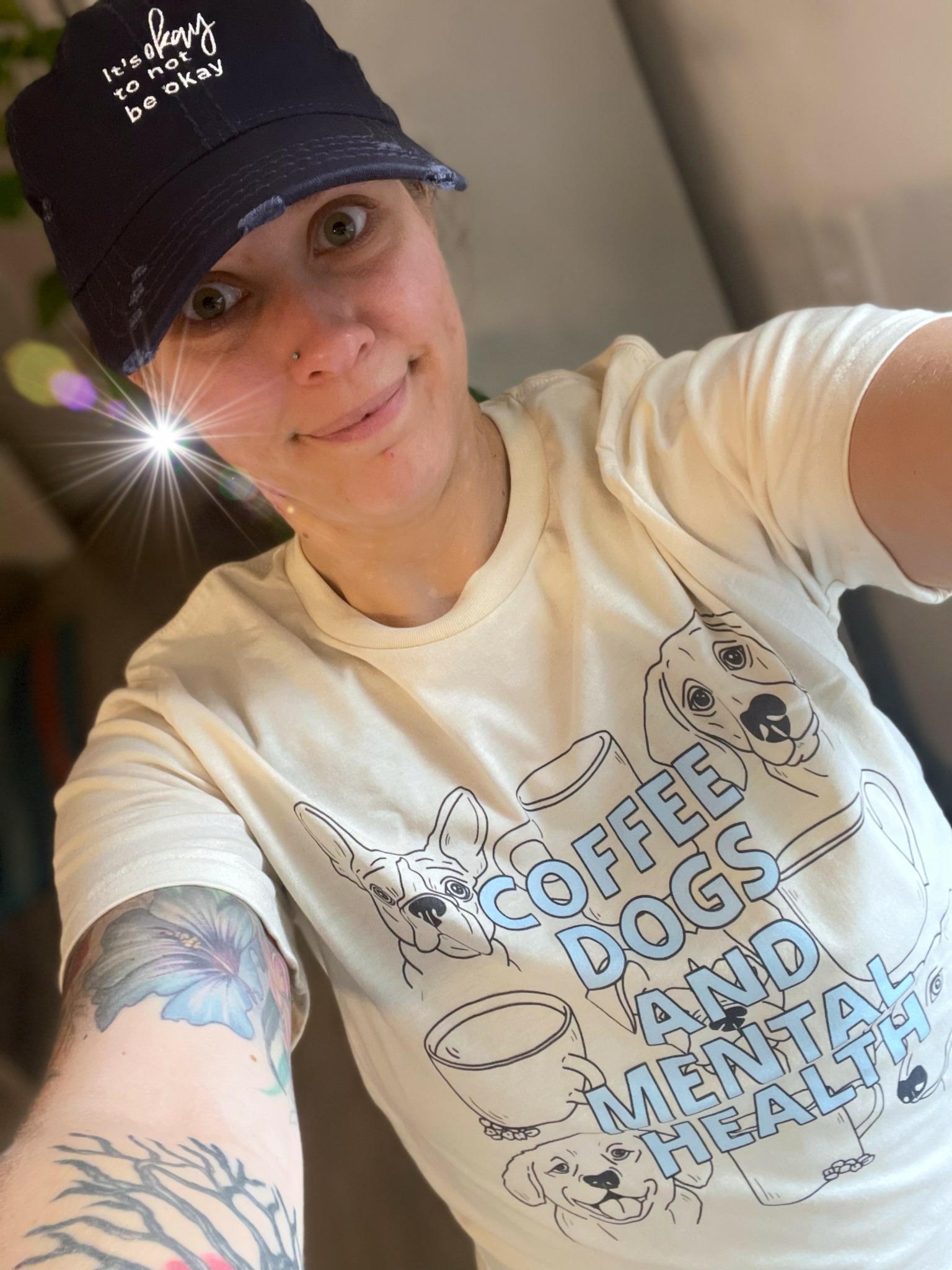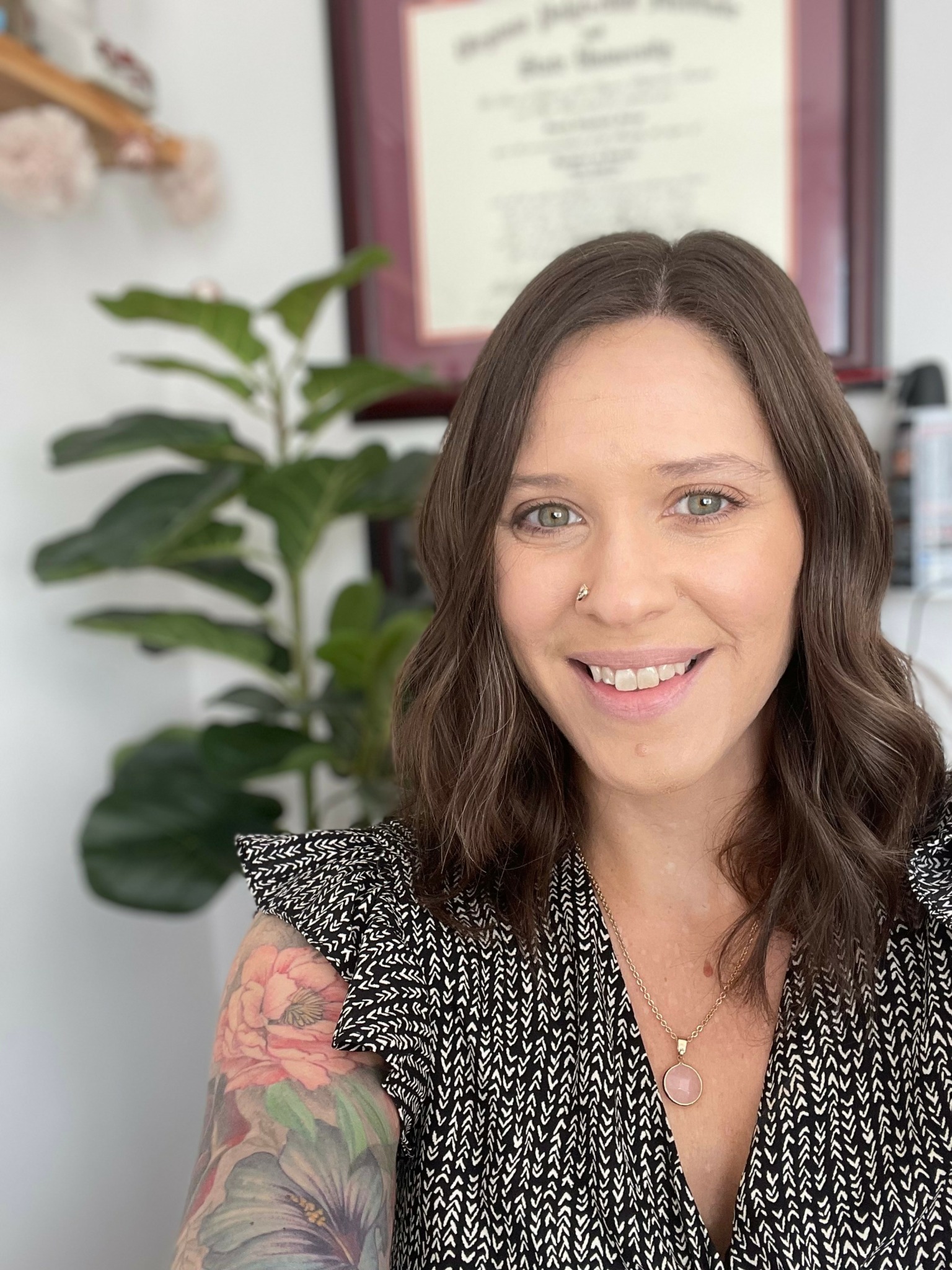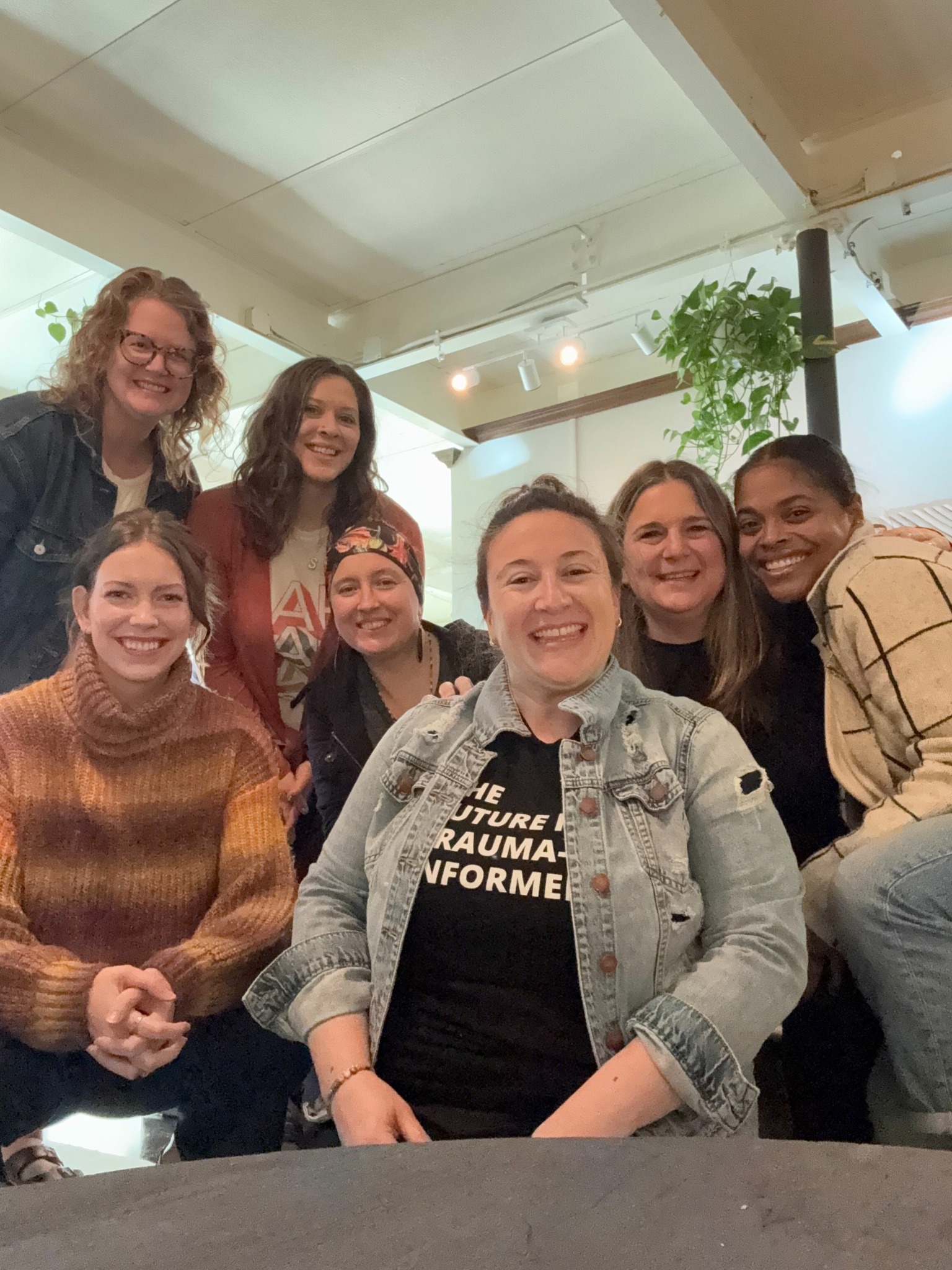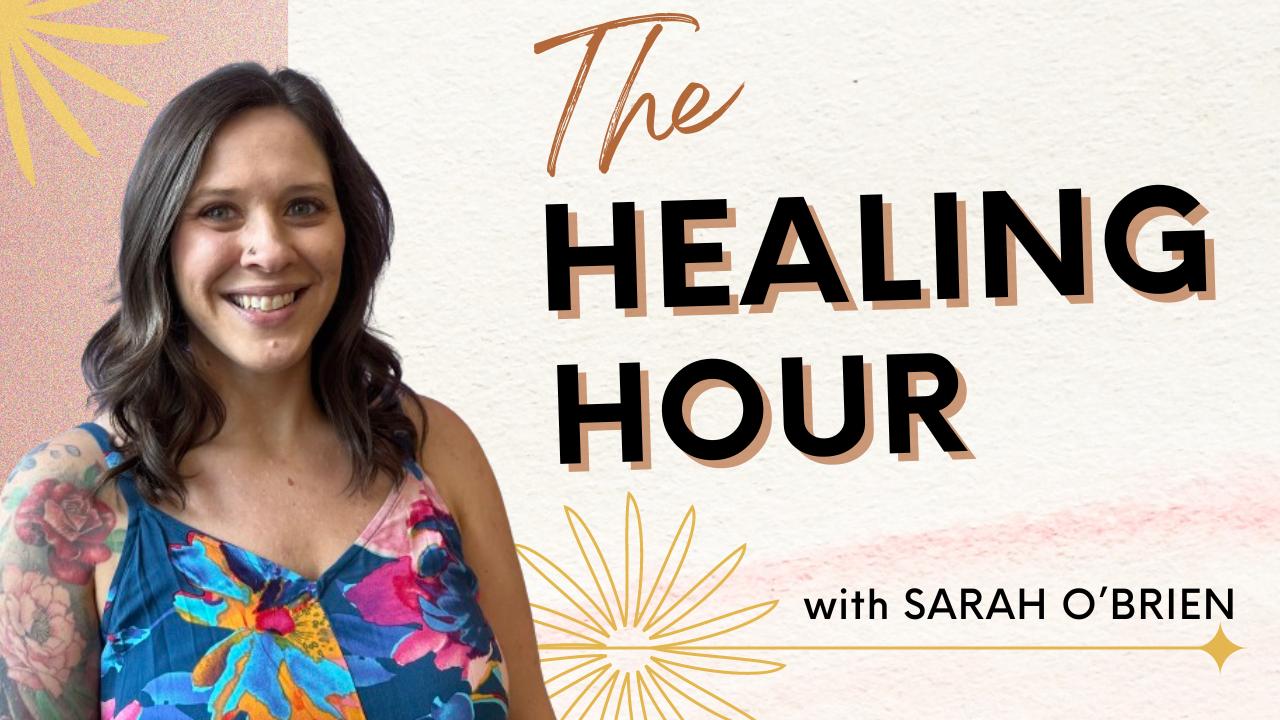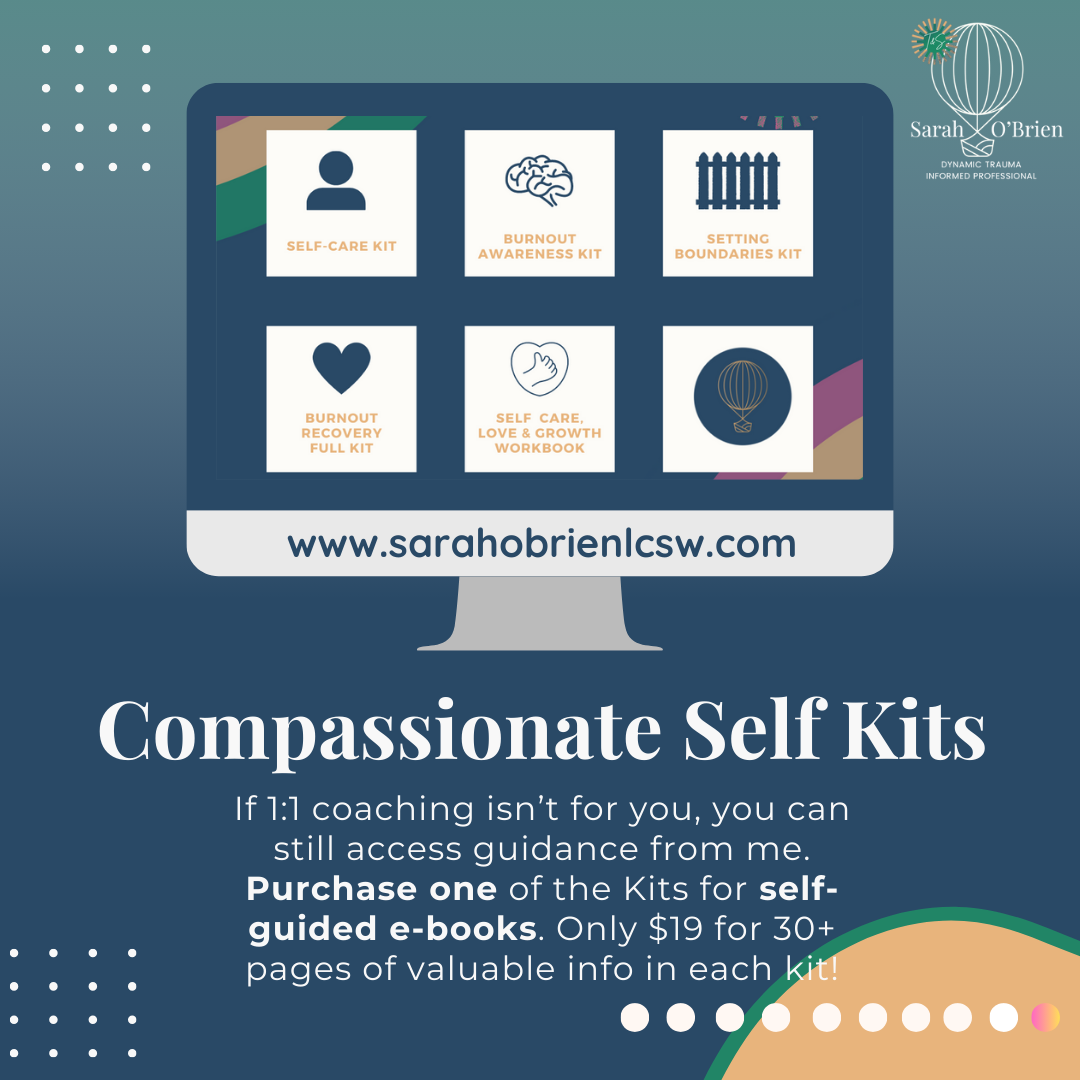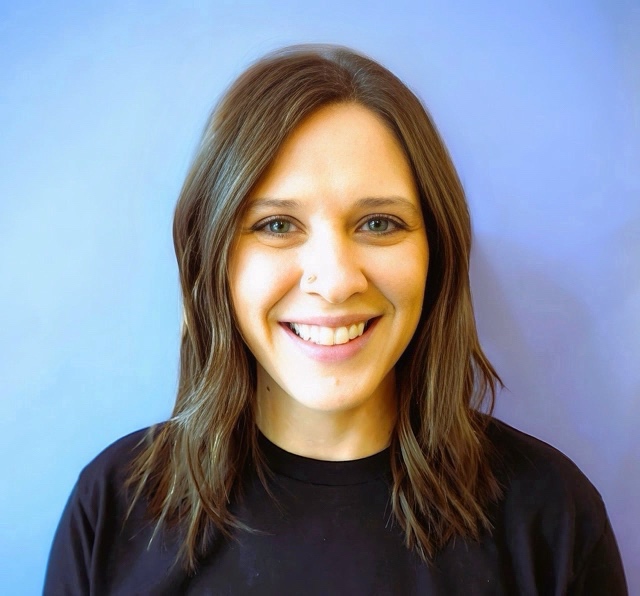Today we’d like to introduce you to Sarah Fargo O’Brien.
Hi Sarah, we’re thrilled to have a chance to learn your story today. So, before we get into specifics, maybe you can briefly walk us through how you got to where you are today?
Yes, such a big question! Well, as soon as I decided I wanted to be a therapist, I also knew I wanted to own a private practice. In fact, this is what I wrote my college entrance essay on…so you can say I’ve been focused on getting to where I am today from the very beginning. Everything thereafter was a stepping stone. Getting into a good college meant doing well in high school and I was extremely busy as I was focused on being ‘well-rounded’ per recommendation for getting into a good college. Then, of course, that meant I had to do well in college to get into graduate school. Do well in graduate school to land a good job (by the way, there is no such thing as a ‘good job’ when it comes to social work, especially when you are first starting out, they’re all pretty terrible). At my first job post grad school I was determined to do well and work towards clinical licensure. I did that and about 3 years later I was a fully licensed clinician.
That doesn’t mean better jobs suddenly opened up (again, they really don’t exist for social workers), but it did mean I was permitted to practice independently and that’s where I was headed the whole time. After a few years working as a licensed outpatient clinician, I was near burnout due to poor leadership and unreasonable work demands at the agency. I considered leaving the mental health field, the practitioner role, entirely. And that was really disheartening because I had basically just finished working my way to this point…all in all, a little over 10 years of dedicated effort to get to where I I wanted to be. Then I would just stop doing it and do something else? I had no idea what that would be. So, I had to figure something else out.
In walks the perfect timing for me to start my practice. I worked my full time agency job WHILE building my practice on the side, completely by myself–with no business degree, no business classes, no business coach, and no business attorney. I juggled responsibilities of both jobs, working 6 full days a week for nearly a year. I needed to build up financial resources, as well as, client caseload before I could quit my agency job. I did what I had to do to get there. It was a lot of work, and a lot of really draining work.
Fast forward 7 years into working at my own practice, and I could feel the burnout symptoms creeping up again. This was almost 3 years into the global pandemic, and at that time, mental health providers were spent. I found myself on the brink of burnout once more and knew this meant adjusting some things to ensure I could gain longevity in this field.
After nearly 15 years of direct service work, I needed to diversify. I needed to reduce client caseload and add in some creativity, some collaboration, some writing, some newness. I had to pivot and find other ways to work, other streams of income that were less draining and less wear and tear on my own nervous system and health. I had no idea what that would look like or where I would find this work, I just started doing stuff, different stuff, new stuff. I started writing for publications and I remember when my first one was accepted, so exciting! That gave me a boost to keep going, and as I found more avenues to write (lifelong passion), I also found more people. People I could connect with and collaborate with who were not clinicians themselves. The more people I met, the more doors started opening for the things I was interested in doing outside of providing clinical care. I was off to the races now! Opportunities to guest on podcasts…then host my own podcast show. Opportunities to guest speak or train…then develop my own resources and trainings. Opportunities to collaborate on others’ projects…then asking others to collaborate with me on my projects. Diversification and finding a professional community were game changers for me. Now, from here on out, I would need to keep both of those things to ensure I would not burnout and abandon the clinician ship.
I’m sure it wasn’t obstacle-free, but would you say the journey has been fairly smooth so far?
Definitely not a smooth road. Like I mentioned, field social work jobs are pretty terrible. Where you work, how you work, schedules, hours, on-call shifts, and mandatory coverage are pre-determined parts of the position and non-negotiable. Salary is also pretty non-negotiable, as they pay what they pay, take it or leave it. No high dollar salary options in the social work field, so it’s accepting a salary that grossly misrepresents the effort, energy, and expertise it takes to do the job. And the jobs are far from awesome.
At my first job, I was required to do in the community work with adults with severe mental illness, at risk of long term hospitalization due to lack of ability to live independently in the community. This was a position at an inner city public mental health agency. I got zero training, was told to shadow my new co-workers to learn the job. It’s a good thing I have social awareness and my own ‘street smarts’ because that’s what led to my success in this role, and I measure success by rapport and interactions with clients, and seeing them accomplish their goals. I was in the minority race both at the agency and with my client caseload, often being the only white person in the room. No one teaches or trains you how to show up in this situation, as no one teaches or trains individuals of other races to show up as a minority race in a room full of white people. However, like I said, my own wherewithal served me well, and it didn’t have anything to do with what I learned in school. I was a person, working with other people, and that was that. I was to build rapport and gently challenge poor patterns of behavior while encouraging healthier patterns of behavior for their overall wellbeing and function in the community. I was good at my job. I enjoyed my clients. They actually liked me and allowed me to be an intimate part of their lives, really, despite no training and minimal support or guidance from leadership.
Then management started to change things. They required my team to move from working five 8-hour shifts a week, to four 10-hour shifts a week plus rotating weekends…without pay differential, without consideration for participating in faith communities, without anyone else from the team, and without a plan for safety (since supervisors and leadership, and most people really, did not work those hours or on the weekends). This is the type of thing that is really common practice for social work positions. These changes not only didn’t consider capacity and boundaries of the worker, it didn’t consider safety or fair reimbursement for the worker. This is easily how burnout happens with mental health providers.
My next job was even worse than the first, and I didn’t think that was possible. As an outpatient clinician, I was required to be on-call for crisis intervention and TDO (temporary detainment order) evaluations, on a rotating shift, without training in crisis intervention, by myself, for an entire county, with only a supervisor available by phone, if they answered. Oh yeah, this was an overnight shift, when I was hired as daytime clinician- talk about whiplash for my body and nervous system! Again, there was no pay differential, no adequate support or supervision, no consideration for clinician capacity or expertise, and no back up if you have more than one evaluation to do at a time. This was absolutely crazy sauce to me. And when I addressed my concerns with my supervisor I was told I was not privy to certain information and the job was not going to change (nor was I going to be paid more, when I was making less than $50k/year, with almost 9 years of experience and 3 years experience as a licensed clinician, this was in 2015, too. Let all that sink in a bit. Mental Health providers are the lowest paid profession for their highly credentialed expertise and experience. It’s appalling to me, it absolutely needs to change).
So, no, the road for any mental health professional is far from smooth. And all of this is paid work. Don’t get me started on the gross misuse of people/students when there is expectation for free labor under the title of ‘internship’ and this ‘internship’ experience is required to graduate and obtain a license. I was required to volunteer 14 hours per week my first year of grad school, and 21 hours per week my second year. Internships only counted for 3 credits. I also had 4 classes simultaneously. If I would have needed to work while in school, I would have been killing myself to do so, and I watched many of my classmates do this. Not everyone has privilege to be a student and not work at the same time. This, to me, is yet another way this profession is undervalued and disrespected. Keep in mind that jobs post graduation are not high paying positions, so anyone incurring student loan debt because they physically/mentally cannot attend school and work at the same time will likely be paying off those debts for a long time.
One of the biggest struggles along the way was, without a doubt, the minimal pay for these high-stress, high-demand positions in mental health care. As a result, it was struggle to advocate for my safety in these positions, which I had to do many, many times, and left me feeling completely uncared for as a human being. It has been a struggle to be a container for some of the most disenfranchised, marginalized, and ostracized people of our communities. It has been a struggle to not be treated with respect by other professions (especially similar ones). It has been a struggle to not be treated with respect by supervisors and leadership.
Being a mental health provider comes with just about as much stress as it does being a person with severe mental illness. I had personal struggles along the way too, including the death of my brother (during college) and my mother (during graduate school). I experienced domestic violence in a relationship. I didn’t have a lot of money and did not have financial support from my family system. I had to work 6 days a week to start my practice. I had to forego balance and self-care for the sake of the job over and over again. There have been many struggles along the way.
We’ve been impressed with Thrive & Shine Counseling, Coaching & Consulting., but for folks who might not be as familiar, what can you share with them about what you do and what sets you apart from others?
Technically, I have two businesses: Thrive & Shine Counseling and Thrive & Shine Coaching & Consulting, the first being my private practice. I am a licensed clinical social worker in Virginia and Maryland, permitted to provide psychotherapy treatment. I work with adults and I specialize in Anxiety Disorders, Substance Use Disorders, Non-using partners, and Trauma responses and disorders. I hold specialty certifications for practice, including certified clinical anxiety treatment professional and certified tele mental health professional.
Outside of being a well-established clinician, I am known for my work in Trauma Informed Leadership which includes emotional intelligence, effective communication, compassionate conflict resolution, and leading with authenticity and transparency to build trust and safety. I am a vetted and verified Subject Matter Expert in Trauma Informed Care and Mental Health. I offer consulting services for individuals, businesses, and organizations wanting to increase their trauma informed practices and creating cultures of safety. I have several digital products including: Compassionate Self Toolkits, e-books on trauma informed leadership and starting a private practice, resources on burnout, emotional intelligence, and setting boundaries.
In addition, I offer private practice start up consulting packages, with hopes to assist as many clinicians as I can to remain in the profession while also taking care of themselves and avoiding burnout, illness, and early death. Starting a private practice was the ticket out for me and it has allowed me to address burnout symptoms, increase my own compassionate self-care, honor my capacity and expertise in the work with clients, and diversify my day-to-day. I can absolutely help any licensed clinician to do the same!
I am known for my direct, yet warm approach to working with people. I am often the ‘real talk’ people need to relate, while at the same time, upholding science-backed and evidence-based interventions for evoking transformational change. It’s hard to have a conversation with me without hearing some fun and fancy four letter words. I lead with my own vulnerable transparency, as I’ve found this bridges gaps and increases a person’s ability to go deeper with themselves and be honest about their struggles. I live out trauma informed principles and practices every day in all areas of life. I am a trauma survivor myself, experiencing many relational traumas from childhood to adulthood. I find something in every single person I have ever worked with that I can relate to, often linking the thread that runs through all of us. I am the greatest hype person for your success–I get so excited when the people I work with accomplish something they wanted to accomplish. I’m a natural cheerleader, and truly can see the good in every person.
I want folks to know that the Thrive & Shine brand operates with integrity. Everything I do from marketing to direct client work falls under the principles and practices of trauma informed care. I genuinely care for the well-being of others and earnestly want to see people get well and function at their best. Whether through trainings, resources, podcasts, articles, books, or speaking engagements healing is the goal, the message of healing needs to reach everyone. And trauma informed leads the way, as this is the best path towards healing for every person.
What sort of changes are you expecting over the next 5-10 years?
Gosh, I hope so! I need to see the mental health industry gain much needed recognition, and I need to see the professionals behind the work in mental healthcare gain much needed recognition. It’s a thankless job, where pay and reimbursement are abysmal, and, yet, it’s vital to the community large, any community.
It would be great to see the stigma around mental health and mental health treatment completely dissipate. There shouldn’t be so many barriers to getting well.
Trauma Informed care should be everywhere! In 10 years, I hope this becomes the standard everywhere, but most especially in leadership. In 10 years, I expect Trauma Informed Leadership to be the rule, rather than the exception.
Pricing:
- Compassionate Self Kits: $19
- Leader Learning Guide: $49
- Private Practice E-book: $19
- Private Practice Forms Bundle: $199
- Coaching & Consulting Packages: please inquire
Contact Info:
- Website: https://www.sarahobrienlcsw.com
- Instagram: https://www.instagram.com/timelesstherapist/
- LinkedIn: https://www.linkedin.com/in/sarahobrienlcsw/
- Youtube: https://www.youtube.com/@timelesstherapist
- Other: https://whoswhoofprofessionalwomen.com/sarah-obrien/
